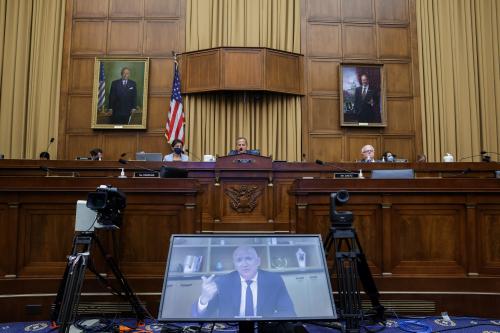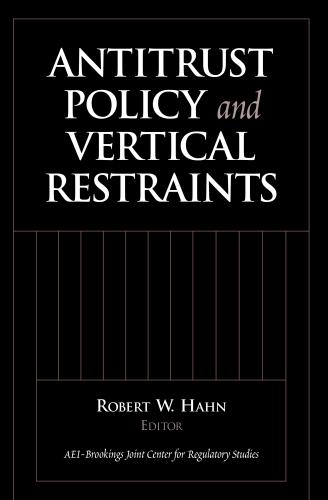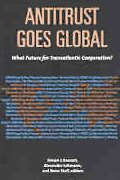The nation’s antitrust laws, developed in response to the industrial age, have become the focus of attention in the internet age. Hearings by the House Antitrust Subcommittee revealed substantial evidence of how Big Tech sustained and expanded their market dominance with anticompetitive practices. The Justice Department is reportedly preparing an antitrust action against Google. The Federal Trade Commission (FTC) is similarly reported to be preparing an action against Facebook.
Enforcement of the antitrust statutes is an important tool for the protection of competitive markets. Yet, it is a blunt instrument unable to reach many nuanced competition and consumer protection issues created by the digital economy. It is inherently uncertain in outcome, reliably lengthy in process, and an after-the-fact response rather than a broad-based set of rules.
Without a doubt, Big Tech has delivered wonderous new capabilities. However, the “move fast and break things” mantra of Silicon Valley has meant that digital companies move fast and make their own rules. Antitrust statutes reflect a time when markets were relatively stable because technology was relatively stable. Today, the rapid pace of digital technology means companies can move rapidly to advantage themselves by exploiting consumers and eliminating potential competition.
Regulation, done with agility, can be an important refinement to the blunt force of the antitrust laws while being able to protect competition and consumers alike. It is not enough, however, to re-task industrial era federal agencies to oversee the digital giants. These agencies are full of dedicated professionals, but they operate on precedents and procedures built for another era when technology and innovation moved at a slower pace. In place of such industrial era muscle memory, we need a purpose-built federal agency with digital DNA.
Congress has traditionally created new expert agencies to oversee new technology platforms. Whether the Interstate Commerce Commission (railroads), Federal Communications Commission (broadcasting), Federal Aviation Administration (air transport), Consumer Financial Protection Bureau (finance), or any other of the alphabet agencies, the precedent is clear: new technologies require specialized oversight. In our report, “New Digital Realities; New Oversight Solutions” we conclude such regulation in the digital era warrants creation of a Digital Platform Agency to establish public interest expectations that promote fair market practices while being agile enough to deal with the rapid pace of digital technology.
Such an agency should be governed by a new congressionally established digital policy built on three pillars:
- Risk management rather than micromanagement: rigid industrial era utility-style regulation is incompatible with today’s rapid pace of technological change. Regulation should be based on risk-targeted remedies focused on market outcomes.
- Restoration of common law principles: for hundreds of years common law has required those providing services to anticipate and mitigate harmful effects (a “duty of care”), as well as providing access to essential services (a “duty to deal”). Oversight of Big Tech need do nothing more than reinstate such expectations.
- Agile regulation: in lieu of top-down dictates, the new agency should be the forum to involve the industry in developing enforceable behavioral standards similar to fire and building codes. Such codes introduce innovation-promoting agility to the oversight process while protecting consumers and competition.
The existing agencies of government are based on statutes and structures that reflect the relatively stable markets and relatively stable technology of the late industrial era. These policies and procedures, however, have been ambushed by the digital future.
The solution to the public interest challenges posed by Big Tech is to embrace its differences and enable subject matter experts to substitute the public interest for corporate interests. While antitrust enforcement is important, the companies can no longer be permitted to make their own rules. It is time for purpose-built federal oversight of the dominant force in our lives and our economy.
The authors are all Senior Fellows at Harvard Kennedy School’s Shorenstein Center and recently published a report titled “New Digital Realities; New Oversight Solutions.” Tom Wheeler is the former Chairman of the Federal Communications Commission. Phil Verveer has served at the Antitrust Division of the Justice Department, the State Department, and the FCC. Gene Kimmelman served in antitrust positions in both the Congress and Department of Justice.
The Brookings Institution is committed to quality, independence, and impact.
We are supported by a diverse array of funders. In line with our values and policies, each Brookings publication represents the sole views of its author(s).











Commentary
The need for regulation of big tech beyond antitrust
September 23, 2020